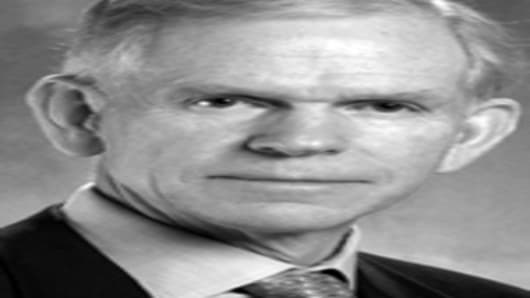Considered one of the finest investors of his generation, GMO co-founder Jeremy Grantham is known best for his bearish views on U.S. equities. At the Morningstar Investment Conferenceon Friday, he's upholding that reputation. Outside of the U.S., however, his views are much more bullish.
"Equities are boring; bonds are disgusting," said Grantham. "It's a difficult environment to operate in."
Grantham told Morningstar attendees earlier this week that he's "spent 15 years pointing out that it's an overpriced market because that's how it's worked out. Nobody's made money in 20 years."
Grantham thinks US corporate earnings are "abnormally high," for two main reasons: He sees profit margins trending up as government debtincreases — "this is an artificial prop to the market" — and an overly bullish bias because being bearish is "bad for business."
"Think how weird profit margins are: We've got high unemployment and financial crises — and world record profit margins," said Grantham. "People think the American market is very cheap. We don't. The market quite incorrectly gives full credit to today's earnings."
But he's obviously found some rewarding asset classes GMO's 2011 performance was 3.9-percent higher than its benchmark net of fees, according to Grantham's latest quarterly letter to investors. (GMO is an institutional multi-asset class manager, currently running about $105 billion, according to the company.)
Grantham is bullish about international stocks. "You'd lose a ton in U.S. small caps; but international small caps are fairly priced — right on the nose," said Grantham. "If you put together a respectable portfolio of international stocks, you’d do much better."
'Much better,' according to GMO's forecast, is about a 6.7-percent return on equity.
In particular, Grantham cites energy, metalsand food — limited resources sure to be stretched by China's rapidly growing demand — as opportunities for the internationally minded investor.
"We live on a finite planet," he said. "We have finite resources, and we're running out of good arable land."



